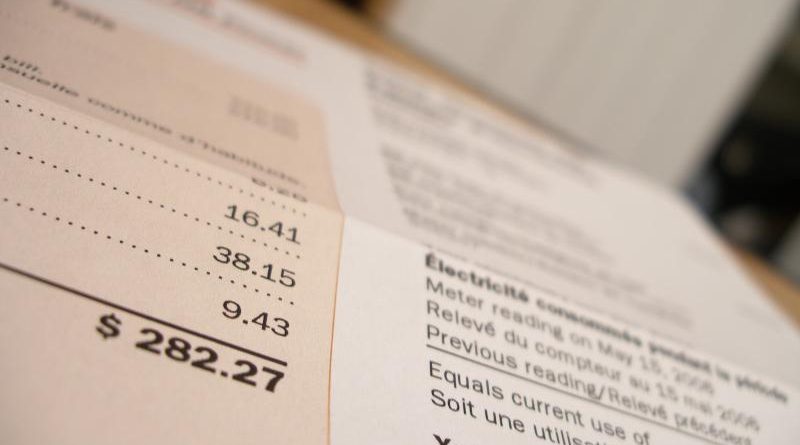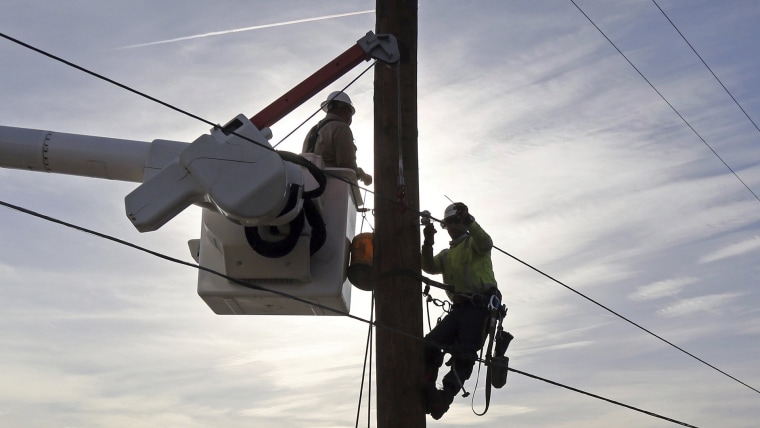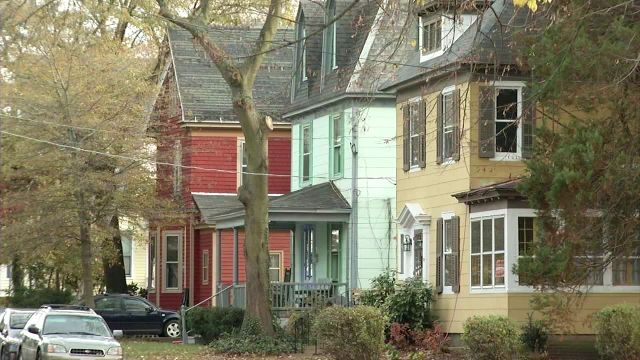New Research Shows Black Households Pay More For Home Energy Than Whites – KERA News
Energy Disrupter

Do Black households face higher home energy bills than white households? That was the question a University of California-Berkeley researcher set out to answer.
After looking at data from nearly a million households across the country, the answer she found was yes.
Residential electricity, natural gas and other home-heating fuel expenditures were “statistically and economically significantly higher for Black households than for white households,” according to a working paper by Eva Lyubich, a PhD student in UC-Berkeley’s economics department and a researcher at the Energy Institute at the Haas School of Business.
On average, Black renters spent $273 more per year for electricity, natural gas and other home-heating fuels than similar white renters between 2010 and 2017. Black homeowners paid $408 more per year than similar white homeowners in that time. The research accounted for household size and income, geography and the age and style of the homes they lived in to make an apples to apples comparison.
“The gap is largest for low-income households,” Lyubich writes.
Black homeowners paid $408 more per year than similar white homeowners in that time between 2010 and 2017.
While her research doesn’t try to explain the cause of these disparities, Lyubich points to a large body of research showing how Black households face higher energy burdens because of the persistent effects of systemic racism, which helps explain why homeowners aren’t any more likely to escape the disparities than renters.
While homeowners can choose to upgrade appliances to improve efficiency or install new windows, renters are at the mercy of their landlords. Still, those upgrades often have upfront costs. They’re an investment and, given the nation’s significant racial wealth gap, Black and white homeowners may have different abilities to invest.
“White households have about 10 times as much wealth as Black households, at the median, and so they have more savings and can make those fixed-cost investments,” Lyubich said.
Lyubich’s paper also points to a growing body of research showing that Black homeowners face paying more property taxes than white neighbors with similar homes and higher mortgage rates than white families with similar incomes and credit scores. Black households are also more likely to be exposed to more pollution from the current energy system, and face higher rates of energy insecurity.
She also cites evidence from the 2015 Residential Energy Consumption Survey to show that Black households are more likely to report that their home is drafty, even accounting for income, and to have fewer high-efficiency appliances. Black households were also less likely to report having received a rebate or tax credit to upgrade appliances.
There’s also research that subsidies for installing rooftop solar panels are disproportionately benefiting white households, in part because of historical discrimination that leads to lower incomes, wealth and homeownership rates among Black and Latino families. Lyubich thinks this could also factor into the race gap in home energy bills, since these photovoltaic panels allow homeowners to turn the sun’s energy into home electricity and then sell the excess back to the utility.
One significant point: At the top of the income spectrum, the race gap in home energy expenditures practically disappears. Similar Black and white households with incomes in the top 10% pay similar energy bills. Because home energy is a much larger share of lower-income household spending, that means low-income Black households are more seriously burdened by these disparities. It’s also an indication, Lyubich suggests, that people with enough financial resources will select energy-efficient homes or upgrade appliances and insulation to save on energy, regardless of race.
“At higher incomes, families are able to make the investments that have high upfront costs,” she said, “and decrease their energy bills moving forward, whereas at lower incomes you might not be able to pay those high fixed costs upfront.”
Implications For Energy And Climate Change Policy
There are some limitations to the research. This is a working paper, so it hasn’t been peer reviewed. The research is based on self-reported data on home energy bills from the Census Bureau, and she wants to look at California residential energy billing data next, which would account for people mis-remembering energy costs or including late fees in their accounting.
The Black-white home energy bill gap, Lyubich says, has some larger implications for energy and climate change policy, too. Home energy accounts for about 20% of energy consumption in the U.S., and that means reducing consumption is one key focus for reducing the pollution that causes health problems and climate change.
For example, simply increasing energy prices through a carbon tax to push people to rein in consumption – using, basically, market forces to fight climate change – may disproportionately hurt Black households, Lyubich says. For most people, the vast majority of home energy consumption is essential, consisting mostly of heating and cooling, cooking and lighting.
“If we’re going to create a climate policy that increases the price of energy on its own,” she said, “we need to think carefully about whether people are going to be able to respond to those price signals, or whether they’re going to get stuck with a higher energy bill because none of their consumption is voluntary anyway.”
Improving the quality of dwellings should probably be part of the solution, Lyubich says, though she cautions there’s a lot of research still to be done to understand the exact mechanisms that stick Black households with higher energy bills and how that disparity might be impacted by climate policy.
Original Source: https://www.keranews.org/post/new-research-shows-black-households-pay-more-home-energy-whites
















